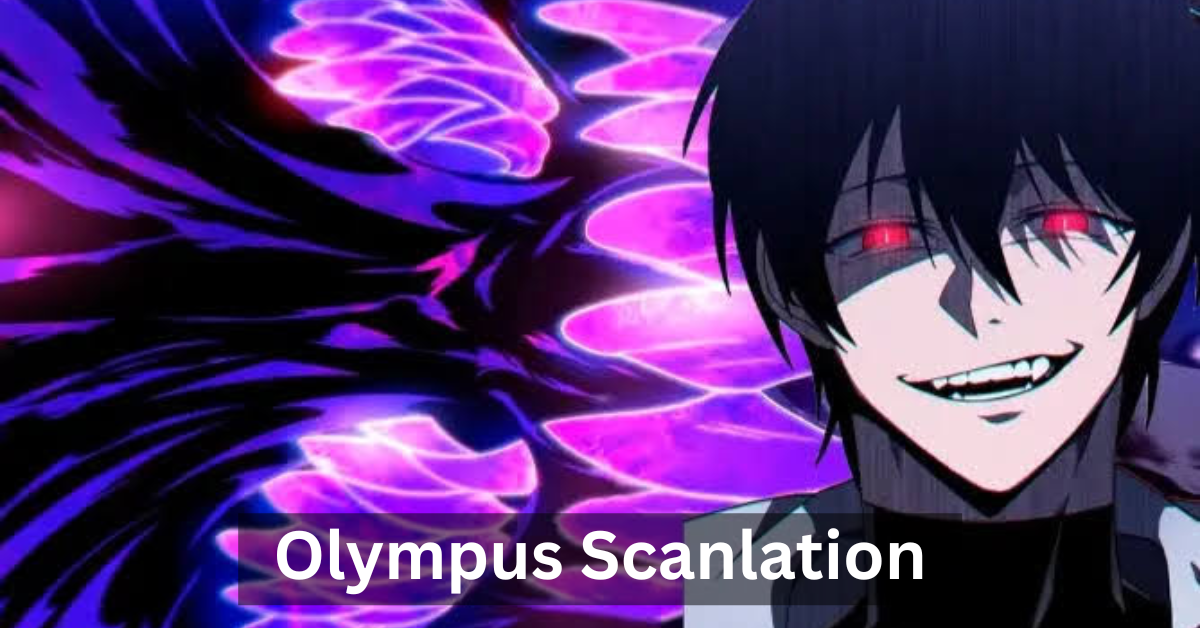In the enchanting realm of manga and manhwa, where vivid illustrations meet captivating narratives, Olympus Scanlation has carved out a unique space. This dedicated manga scanlation group plays a vital role in bringing these artistic stories to a broader audience, enabling fans across the globe to engage with content that might otherwise be inaccessible.
Scanlation, a blend of “scan” and “translation,” refers to the process of creating unofficial translations of manga and manhwa. As the demand for free manga translations surged, groups like Olympus emerged as essential facilitators of cultural exchange, fostering a rich manga fandom that transcends borders.
Olympus Scanlation is not just another name in the long list of fan translation teams; it represents a commitment to quality and cultural appreciation. The group stands out for its meticulous attention to detail and dedication to preserving the original flavor of the stories they translate. By transforming Japanese and Korean texts into English, they make these works accessible to an audience that might otherwise miss out on their beauty.
Scanlation has become increasingly significant in the manga and manhwa community, primarily because of the challenges posed by traditional publishing. With many series remaining untranslated or unavailable in certain regions, scanlation groups like Olympus play an essential role in democratizing access to these works. They not only foster a love for manga but also cultivate a community that thrives on shared interests and cultural exploration.
What is Olympus Scanlation?
Definition and background
Olympus Scanlation is a dedicated team of fans who undertake the translation, editing, and publication of manga and manhwa in English. The group’s efforts have significantly enriched the global manga fanbase by providing translations that maintain the integrity and intent of the original works. This passion for manga has created a thriving community, bolstered by readers who eagerly anticipate each release.
The mission and vision of the group
The mission of Olympus Scanlation revolves around accessibility and quality. The team is committed to making beloved manga and manhwa accessible to non-Japanese and non-Korean speakers. Their vision extends beyond mere translation; they aim to enhance the reader’s experience by ensuring that cultural nuances and artistic integrity are preserved.
The significance of the name “Olympus”
The name “Olympus” holds a special meaning, symbolizing the group’s aspiration to reach the pinnacle of excellence in their translations. Just as Mount Olympus is associated with the gods in Greek mythology, Olympus Scanlation strives to elevate the standard of fan-led translations in the manga community.
The History of Olympus Scanlation
Founding and early days
Olympus Scanlation was founded by a group of passionate fans who recognized a growing need for high-quality translations of manga and manhwa. In the early days, the team started small, focusing on a few select series. Their dedication to providing accurate translations quickly garnered a loyal following, paving the way for their expansion into a well-respected name in the scanlation community.
Growth and development within the scanlation community
As the demand for unofficial manga translations continued to grow, so did Olympus Scanlation. The group expanded its roster of projects and contributors, creating a collaborative environment where fans could contribute their skills, whether in translation, editing, or artwork. This collaborative spirit helped foster a sense of community among fans and established Olympus as a cornerstone in the scanlation landscape.
Key milestones and achievements
Over the years, Olympus Scanlation has achieved several key milestones, including the successful release of numerous fan-favorite titles. Their reputation for quality translations has led to increased recognition within the manga and manhwa community, allowing them to influence trends and foster interest in lesser-known works that might not have received official translations.
The Scanlation Process Explained
The process of scanlation is intricate and requires a diverse set of skills. Olympus Scanlation adheres to a meticulous workflow that ensures each translated piece meets high standards of quality and fidelity to the original content.
Acquisition of Raw Materials
The journey of translating a manga or manhwa begins with acquiring raw materials. This can involve purchasing physical copies from publishers like Kodansha and Shueisha or obtaining digital scans of the works. In cases where the originals are scanned, the team ensures that the quality is high, as it significantly impacts the readability of the final product.
Translation Steps
Once the raw materials are in hand, the translation process begins. This stage presents unique challenges, particularly when translating from Japanese or Korean into English. Translators must not only convey the literal meanings of the text but also understand cultural references and nuances embedded in the dialogue. The importance of cultural context cannot be overstated, as it often enriches the narrative and deepens reader engagement.
Editing and Typesetting
After the translation is complete, the next phase involves editing and typesetting. Editors carefully review the translated text for grammatical accuracy and consistency, ensuring that it flows naturally for English-speaking audiences. Typesetters then take the edited text and integrate it into the manga pages, aligning it carefully to fit within the artwork without disrupting the visual flow.
Cleaning and Redrawing Artwork
In many cases, original text elements such as sound effects or signs must be removed from the artwork. This process, known as “cleaning,” is technical and requires proficiency in graphic editing software. Once the original text is removed, artists redraw the affected areas, creating a seamless look that integrates the English text into the artwork as if it were part of the original design.
Quality Control Measures
Before releasing a chapter to the public, Olympus Scanlation conducts thorough quality control checks. This final round of review ensures that all aspects—translation accuracy, typesetting, and visual fidelity—meet their high standards. Only once the team is satisfied with the finished product does it become available on platforms like MangaDex and Manganelo, where fans can enjoy it.
Impact of Olympus Scanlation on the Manga Community
Olympus Scanlation has had a profound influence on the global manga and manhwa community, breaking down barriers and promoting cultural exchange.
Accessibility of manga and manhwa for global audiences
One of the most significant contributions of Olympus Scanlation is its role in making manga and manhwa accessible to a wider audience. By providing translations of works that may not have been officially released in English, they have opened doors for countless fans to explore new stories and genres. This accessibility fosters a more inclusive manga culture, allowing readers from various backgrounds to connect with the art form.
Fostering appreciation for Japanese and Korean cultures
Through their translations, Olympus Scanlation fosters a deeper appreciation for Japanese and Korean cultures. Fans are often introduced to cultural elements, social norms, and historical references that enrich their understanding of the stories they read. This cultural exchange is vital for building a global community of manga enthusiasts who appreciate the medium’s richness.
Influence on official translations and the industry
The success of scanlation groups like Olympus has not gone unnoticed by the manga industry. Publishers such as VIZ Media and Crunchyroll Manga are increasingly aware of the demand for translated works, leading to a surge in official releases. Some scanlation groups have even been approached for collaboration on official translations, recognizing the expertise and passion of these fan-led teams.
Challenges and Controversies Surrounding Scanlation
While the work of Olympus Scanlation is largely celebrated, it does not come without its challenges and controversies.
Legal issues related to copyright and intellectual property
Scanlation exists in a legal gray area, as it involves the unauthorized reproduction of copyrighted material. This has led to conflicts with publishers and copyright holders, resulting in some scanlation groups facing legal action. Olympus Scanlation navigates these waters carefully, often choosing to work on series that are not yet licensed for official English release.
Ethical considerations in fan translations
The ethical landscape of scanlation is complex. While many fans view their work as a service to the community, there are concerns about the potential harm to the original creators and the industry. Some argue that scanlation undermines official releases, which can lead to financial losses for publishers and authors. This has sparked debates within the manga community about the moral implications of producing and distributing unofficial translations.
Olympus Scanlation, like many other groups, strives to be conscious of these ethical considerations. They often prioritize works that are either out of print or not available in English, minimizing the impact on official publications. This careful approach reflects a broader trend in the scanlation community, where many groups aim to support, rather than detract from, the original creators.
Internal conflicts within the scanlation community
The scanlation community is not immune to its own internal conflicts. Differing opinions on the best practices for translation, the treatment of raw materials, and the ethical implications of their work can sometimes lead to disputes among groups and individual contributors. Olympus Scanlation actively works to cultivate a collaborative environment, focusing on constructive dialogue and shared goals. This emphasis on unity helps the group maintain its reputation and fosters a positive atmosphere for its members.
The Future of Olympus Scanlation
As the manga and manhwa industries continue to evolve, Olympus Scanlation faces both challenges and exciting opportunities for growth.
Adaptation to changing industry dynamics
With the rise of digital manga platforms and the increasing presence of streaming services like Crunchyroll and Webtoon, the landscape for manga consumption is changing rapidly. Olympus Scanlation is adapting to these shifts by exploring new ways to engage with fans, whether through enhanced digital offerings or community-driven initiatives. Their ability to pivot in response to industry changes will be crucial for their continued relevance.
Potential collaborations with publishers
In light of the increasing recognition of the scanlation community, there is potential for Olympus Scanlation to collaborate with publishers. Such partnerships could lead to official translations of popular titles, ensuring that fans have access to high-quality, licensed content. By aligning with publishers, Olympus could help bridge the gap between fan-driven initiatives and the traditional publishing industry, fostering a more collaborative environment for manga distribution.
Predictions for the future of fan-driven translations
The future of fan-driven translations looks promising, especially as global interest in manga and manhwa continues to grow. As more readers turn to digital platforms for their content, the demand for diverse stories will rise. Olympus Scanlation can expect to see a growing audience eager for quality translations of both mainstream and niche titles. By maintaining their commitment to quality and cultural appreciation, they will remain a vital player in this evolving landscape.
Case Studies: Notable Series Translated by Olympus Scanlation
Olympus Scanlation has worked on numerous beloved titles, each contributing to their reputation as a premier scanlation group.
Overview of popular titles they’ve worked on
Among their many projects, Olympus Scanlation has brought to life several popular series that resonate with fans. Titles like Attack on Titan and My Hero Academia have attracted significant attention, helping to elevate Olympus’s status within the community. By tackling these high-profile works, the group has showcased its ability to handle diverse genres and styles, attracting readers from all walks of life.
Reader reception and community impact
The reader reception of Olympus Scanlation’s work has been overwhelmingly positive. Fans often express their appreciation for the quality and accuracy of the translations, praising the group for its dedication to maintaining the original essence of the stories. The community impact is substantial, as these translations have fostered discussions, fan art, and even cosplay based on the series. This level of engagement further solidifies Olympus Scanlation’s position as a central hub for manga fandom.
Community Engagement and Fan Interaction
Engagement with the community is a cornerstone of Olympus Scanlation’s ethos.
How Olympus Scanlation connects with fans
Olympus Scanlation employs various methods to connect with its audience. Through social media platforms and dedicated forums, the group engages in direct dialogue with fans, fostering a sense of community. They share updates on upcoming releases, solicit feedback on their work, and even involve fans in discussions about the manga they translate. This transparency builds trust and loyalty among readers, creating a vibrant fan culture around their translations.
Importance of feedback and community support
Feedback from the community is crucial for Olympus Scanlation. The group actively encourages readers to share their thoughts on translations, which helps them refine their process and improve future releases. This open line of communication not only enhances the quality of their work but also strengthens the bond between the translators and the fans, fostering a collaborative spirit that celebrates shared enthusiasm for manga and manhwa.
Conclusion
Olympus Scanlation stands as a testament to the passion and dedication of manga and manhwa fans. By providing high-quality translations and engaging with the community, they have made significant contributions to the global manga landscape. Their efforts have not only increased accessibility to beloved series but have also fostered a greater appreciation for Japanese and Korean cultures.
As the future of manga continues to unfold, Olympus Scanlation will undoubtedly play a pivotal role in shaping how fans experience and engage with this art form. With their commitment to excellence and community, they embody the spirit of collaboration that defines the manga fandom.
Frequently Asked Questions
What is scanlation?
Scanlation is the process of creating unofficial translations of manga and manhwa, allowing fans to access these works in languages other than Japanese or Korean.
Is Olympus Scanlation affiliated with any publishers?
No, Olympus Scanlation operates independently and produces fan translations that are not officially licensed by publishers.
How can I support Olympus Scanlation?
You can support them by following their releases on platforms like MangaDex, providing feedback, and participating in community discussions.
What titles has Olympus Scanlation translated?
Olympus Scanlation has worked on various popular series, including Attack on Titan and My Hero Academia, among others.
Are scanlations legal?
Scanlation exists in a legal gray area, as it involves the reproduction of copyrighted material without permission. However, many scanlation groups operate under the belief that they provide a service by translating works that are not available in their language.
Stay in touch to get more updates & alerts on Picnob! Thank you



